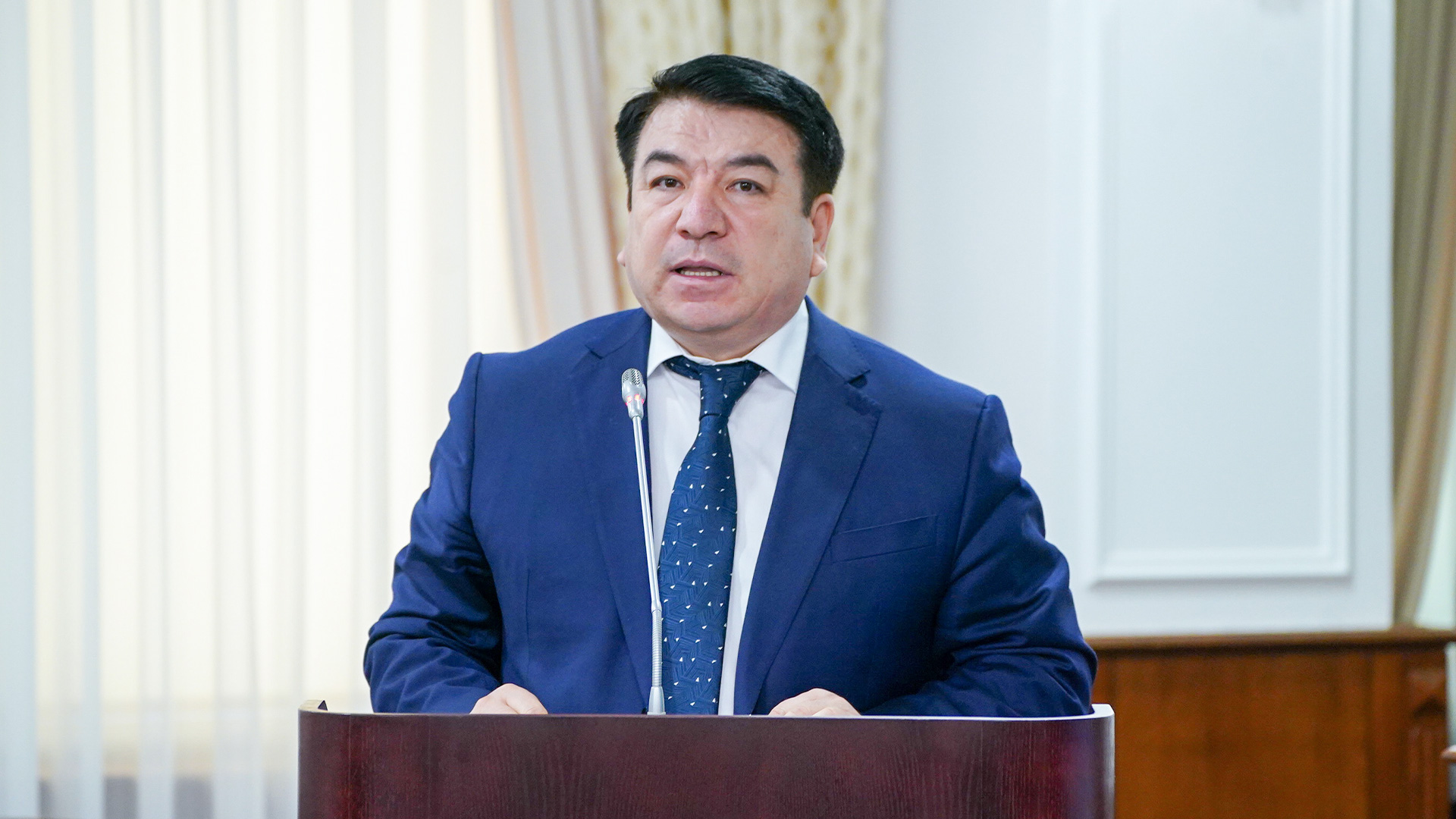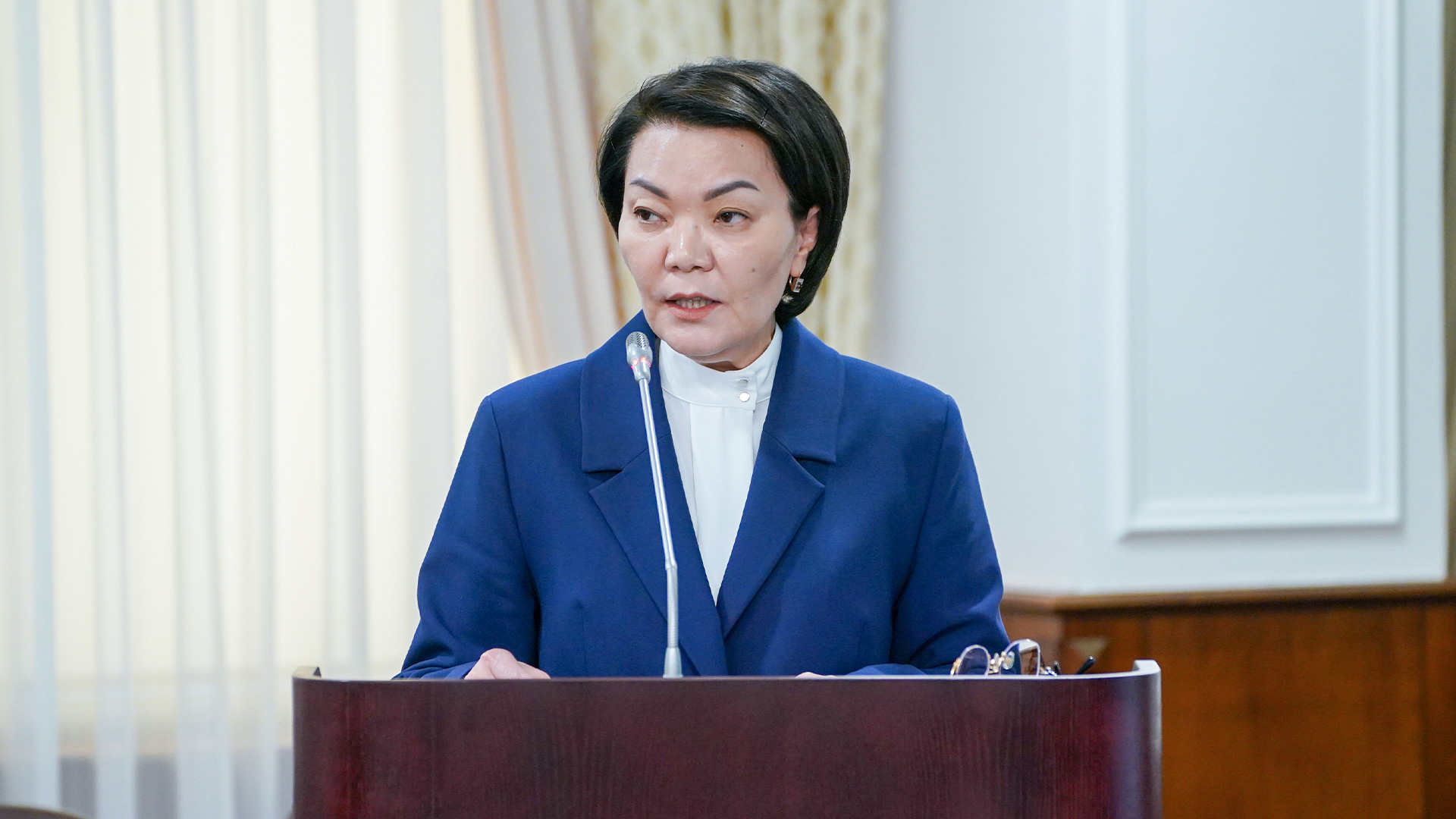10 October 2023, 15:28
 In accordance with the instruction of the Head of State, systematic work is being carried out in the system of technical and vocational education to train qualified personnel in demand in the labor market. This is provided in the Concept of development of preschool, secondary, technical and vocational education for 2023-2029. Issues of development of technical and vocational education were considered at the Government session chaired by Prime Minister Alikhan Smailov.
In accordance with the instruction of the Head of State, systematic work is being carried out in the system of technical and vocational education to train qualified personnel in demand in the labor market. This is provided in the Concept of development of preschool, secondary, technical and vocational education for 2023-2029. Issues of development of technical and vocational education were considered at the Government session chaired by Prime Minister Alikhan Smailov.
Ministers of Education Gani Beisembayev, Labor and Social Protection of the Population Svetlana Zhakupova, Akim of Turkestan region Darhan Satybaldy and Akim of West Kazakhstan region Nariman Turegaliyev made reports.
Thus, according to Gani Beisembayev, 531 thousand students study in 772 colleges. 85% of colleges train personnel on technical, agricultural and service directions of economy branches. On the instructions of the President, 100% free coverage of young people in demanded professions by 2025 is envisaged. The planned indicator of the current year has been fulfilled.
"However, the low level of coverage of graduates with free TVET in Turkestan and West Kazakhstan regions. Employment of graduates is one of the main indicators of training. Today this indicator is 77%, taking into account pension contributions and contracts with employers. This indicator is lower than the republican one in Turkestan and Kyzylorda regions," the Minister noted.
In 2025 it is planned to increase the volume of state order up to 155 thousand, of which 70% will be directed to technical specialties. In order to provide social support to students from this academic year the scholarship has increased by 50%, in 2024 by another 50%. Today 85% of students are provided with dormitories. By 2027, dormitories for 10 thousand places will be put into operation in order to solve the deficit problem.
"In addition, targeted training of personnel with the obligation of employment is carried out by order of enterprises. Now 20 thousand students are trained in this direction, in 2029 target training will cover 80 thousand students. In order to form a qualitative composition of teachers and heads of colleges, measures have been taken to attract specialists from production with the establishment of additional payment in the amount of up to 35%. In order to form new leaders of change in colleges, the issues on formation of personnel reserve are being worked out," the Minister said.
The format and structure of professional development courses for teachers are focused on training and practice in specific industrial conditions. In the future, 26 thousand teachers will take professional development courses in the new format.
More than 72 thousand students are covered by dual education in 558 colleges, in 2029 it will be about 160 thousand students. In 2 years, 40,263 college graduates have been able to enter the labor market with up to a year and a half of work experience.
"One of the ways to expand dual training is to develop patronage of colleges. To date, 498 enterprises patronize 410 colleges. Representatives of enterprises are on the boards of trustees. To date, about 1 billion tenge has been allocated by enterprises to equip colleges. Colleges together with employers have developed more than 4 thousand educational programs taking into account the requirements of professional standards, GOSS and WorldSkills standards, as well as taking into account regional peculiarities. It should be noted that the relevance and quality of the programs are analyzed by the Industrial Councils (693 councils) established at the colleges, which include employers. In the future, when updating educational programs, new professional standards and the Atlas of professions will be taken as a basis," the speaker stressed.
He also added that the Ministry has analyzed the areas of activity of colleges in order to move to a new qualitative level of training in the system of technical and vocational education. The disproportion between the specialization of the region and training of personnel in colleges has been revealed. In this connection, the profiling of colleges will continue, taking into account the specialties in demand in the region.
In order to disseminate effective advanced methods and approaches in training, locomotive colleges will be identified, IT-hubs will be opened on the basis of modern colleges. To develop entrepreneurial skills of students, student business incubators are being created. Establishment of small enterprises at colleges will provide practical training to students. The issue of doubling the per capita standard of financing for training in colleges is also being worked out.
According to the Minister of Labor and Social Security, almost half of the employed population (4.4 million people out of 9.1 million) have vocational education. Therefore, the quality of education in the TVET system largely affects productivity in the entire economy and the income of the population.
"The main sectors of employment are trade, industry and agriculture. According to our information systems, those employed in industry, health care, transportation and construction have the highest incomes and productivity. However, 57% of employed 2022 graduates work in low-productivity industries, which consequently affects their incomes. The current demand for TIPO staff shows that the greatest demand on the Electronic Labor Exchange is for workers in sales, administration, construction, transportation and IT," Svetlana Zhakupova said.
 These sectors account for 43% of the total current demand. In the perspective up to 2030, the staffing needs of the economy will amount to 1.8 million workers, of which 53% or 976 thousand will be specialists with technical education.
These sectors account for 43% of the total current demand. In the perspective up to 2030, the staffing needs of the economy will amount to 1.8 million workers, of which 53% or 976 thousand will be specialists with technical education.
According to the survey of NCE Atameken, the demand for workers with technical and vocational education almost twice prevails over the demand for workers with higher education. The megacities of Astana and Almaty, as well as Karaganda and East Kazakhstan regions are most in need of them.
"Due to the development of digital technologies, most professions will undergo changes and there will be a need for new skills. According to the Atlas of new professions and competencies, 239 new professions may appear in Kazakhstan in the near future. In this regard, it is necessary to carry out advanced training of future personnel already today. To ensure the interrelation of the education system with the requirements of the labor market will continue work on the development of the National Qualifications System," the Minister said.
Thus, the Law "On Professional Qualifications" has been adopted and the corresponding digital platform has been launched. To date, 623 professional standards have been adopted, which establish the requirements of employers to almost 3 thousand professions. Another 400 professional standards will be developed by 2025. Based on the existing professional standards, 4.1 thousand educational programs have already been implemented at the TVET level.
Students' industrial practice and employment of graduates will be carried out through the Electronic Labor Exchange.
#Education #Employment #Employment #Government session"Integration of our information systems with the ministries of education, science and higher education will give students the opportunity to choose a place for internship and form a portfolio for future employment. As part of this work, we will provide quality monitoring of employment of graduates based on information about the conclusion of employment contracts and the availability of pension accruals," Zhakupova summarized.
Stay updated about the events of the Prime minister and the Government of Kazakhstan - subscribe to the official Telegram channel
Subscribe